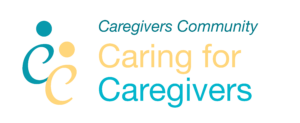** Edited by
Baha and Margaret Habashy
The Challenge
How do you survive emotional exhaustion?
The demanding roles of caregiving takes an emotional toll on even the most loving of all of us. While juggling responsibilities, caregivers ride an emotional rollercoaster, navigating highs and lows. The strain impacts mental well-being, highlighting the crucial need for self-care.
Meet Yukiko
Yukiko is a resilient 60-year-old. She lives on an emotional rollercoaster as she cared for her dementia-stricken mother. The highs, fleeting moments of connection, were overshadowed by heart-wrenching lows as her mother slipped away.
Juggling doctor appointments and the daily complexities, Yukiko’s face bore the lines of a demanding role that exacted an emotional toll.
The weight of caregiving etched a delicate dance of love and exhaustion. In stolen moments, Yukiko tended to her garden or sipped tea, recognizing the crucial need for self-care amidst the turmoil. Her journey, a poignant melody of sacrifice, resilience, and love, echoed through the narrow streets of their town—a testament to the strength found in navigating the highs and lows of caregiving.
BIBLICAL INSIGHTS
Isaiah 40:31:“But those who hope in the Lord will renew their strength. They will soar on wings like eagles; they will run and not grow weary, they will walk and not be faint.”
For caregivers facing emotional exhaustion, this verse assures that placing their hope in the Lord will bring renewal and endurance, enabling them to navigate their caregiving journey with strength.
Psalm 34:18 “The Lord is close to the brokenhearted and saves those who are crushed in spirit.”
This verse speaks directly to the emotional toll caregiving can take. It offers solace by affirming that God is near, providing comfort and salvation for caregivers whose spirits may feel crushed by the weight of their responsibilities.
Matthew 11:28 :“Come to me, all you who are weary and burdened, and I will give you rest.”
Caregivers carrying the heavy burden of their responsibilities can find reassurance in this invitation from Jesus. It encourages them to turn to Him for rest and relief, acknowledging that they do not need to carry the weight alone.
1 Peter 5:7 :“Cast all your anxiety on him because he cares for you.”
This verse reinforces the idea that caregivers can release their anxieties and burdens to God, trusting in His care. It speaks directly to the emotional well-being of caregivers, assuring them that they are not alone in their struggles
THOUGHTS AND TIPS
- Establish a Support System: Example: Reach out to friends, family, or local caregiver support groups for emotional support and practical assistance, allowing for shared experiences and advice.
- Prioritize Self-Care: Example: Dedicate time for activities you enjoy, like reading, taking a walk, or pursuing a hobby, to maintain mental and emotional well-being amidst caregiving responsibilities.
- Delegate Tasks: Example: Involve other family members or friends in caregiving responsibilities, such as meal preparation or running errands, to distribute the workload and prevent burnout.
- Seek Professional Help: Example: Consult a therapist or counselor to address the emotional toll of caregiving, providing a safe space to express feelings and learn coping strategies.
- Establish Clear Communication: Example: Maintain open and honest communication with the care recipient, family, and healthcare providers to ensure everyone is on the same page regarding expectations and care plans.
- Utilize Respite Care: Example: Take advantage of respite care services to provide temporary relief, allowing caregivers to recharge and attend to personal needs without compromising the quality of care.
- Set Realistic Goals: Example: Break down caregiving tasks into manageable goals, prioritizing based on urgency, and adjusting expectations to prevent feelings of being overwhelmed.
- Educate Yourself: Example: Attend workshops, seminars, or online courses to enhance caregiving skills, gain insights into the care recipient’s condition, and stay informed about available resources.
- Create a Daily Routine: Example: Establish a consistent daily routine that includes caregiving tasks, self-care, and breaks, providing structure and predictability for both the caregiver and care recipient.
- Financial Planning: Example: Consult with a financial advisor to explore available resources, insurance coverage, and potential financial assistance programs, alleviating the economic burden of caregiving.
- Stay Organized: Example: Maintain a centralized system for medical records, important contacts, and caregiving schedules, reducing stress and ensuring essential information is easily accessible.
- Promote Independence: Example: Adapt the living environment to enhance the care recipient’s independence, such as installing grab bars or utilizing assistive devices tailored to their needs.
- Use Technology: Example: Explore caregiving apps or devices that can assist with medication reminders, appointment scheduling, and communication with healthcare providers for efficient caregiving.
- Set Boundaries: Example: Establish clear boundaries for personal time and communicate these to friends and family, ensuring caregivers have dedicated periods for rest and relaxation.
- Celebrate Small Victories: Example: Acknowledge and celebrate achievements, whether completing a challenging caregiving task or achieving a positive health outcome, fostering a positive atmosphere.
- Stay Socially Connected: Example: Maintain social connections through phone calls, video chats, or in-person visits, preventing caregiver isolation and providing emotional support.
- Attend Caregiver Support Groups: Example: Join local or online caregiver support groups to connect with others facing similar challenges, sharing experiences, and gaining valuable insights.
- Plan for Emergencies: Example: Develop an emergency plan that includes contact information for healthcare providers, medications, and important documents, ensuring preparedness for unexpected situations.
- Regular Health Check-ups: Example: Prioritize regular health check-ups for both the caregiver and care recipient, addressing any health concerns proactively and preventing potential crises.
At our Community Forum you post your prayer requests, gain spiritual guidance, seek emotional support, and get answers to your caregiving questions. Moderated by qualified Christians, pastors, and healthcare professionals, it is our gift to serve you.
** Note: This blog content was developed with help from ChatGPT 3.5. The story, names and images are for illustration only.





Leave a Reply
Want to join the discussion?Feel free to contribute!